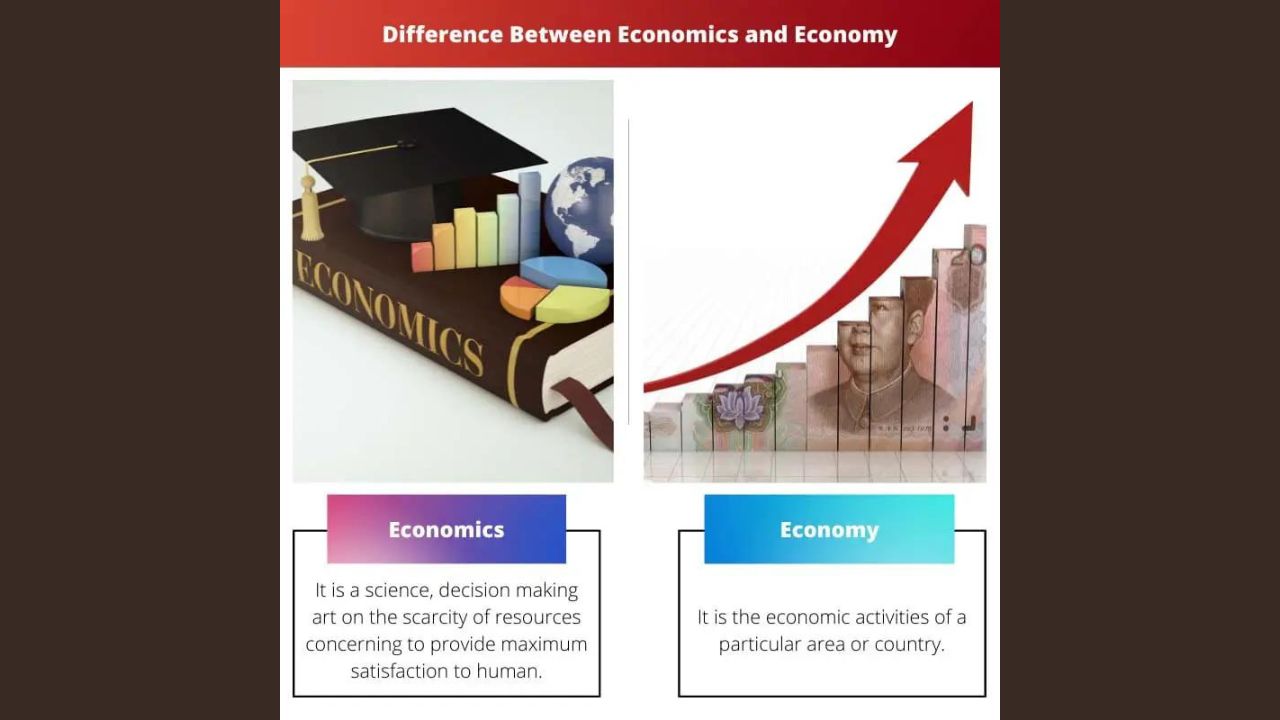Economic investments focus on enhancing overall productivity and growth in an economy, while financial investments aim to generate returns for investors. The key distinctions lie in their objectives, time horizons, risk profiles, and measurement criteria, both playing vital roles in wealth creation and economic development.
To Economic and Financial Investments
Economic and financial investments represent two distinct approaches to allocating resources for growth and prosperity. Economic investments involve expenditures aimed at enhancing the productive capacity of an economy. These investments often focus on infrastructure development, education, healthcare, and technology,
with the goal of fostering long-term economic growth and improving living standards. Financial investments, on the other hand, involve allocating funds into various assets such as stocks, bonds, real estate, and commodities, with the aim of generating returns and accumulating wealth.
While economic investments contribute to the foundational elements of an economy, financial investments cater to individual wealth creation and portfolio diversification. Both types of investments play crucial roles in shaping the economic landscape,
with economic investments laying the groundwork for sustainable development and financial investments facilitating capital formation and resource allocation. Understanding the differences between economic and
Defining Economic Investments
Economic investments refer to expenditures made with the intention of enhancing the productive capacity of a country or region. These investments are aimed at increasing the overall output and efficiency of the economy. Examples include investments in infrastructure, technology, education, and healthcare.
Defining Financial Investments
Financial investments involve the allocation of funds into assets with the expectation of generating income or appreciation in value. These assets include stocks, bonds, mutual funds, real estate, and commodities. Profit motives and market dynamics primarily drive financial investments.
Economic Investments
Economic investments are critical for fostering long-term growth and development. They contribute to the creation of jobs, improvement of living standards, and expansion of the economy’s productive capabilities. Governments often play a significant role in promoting economic investments through policies and initiatives aimed at infrastructure development and innovator
Financial Investments
Financial investments are more focused on wealth accumulation and capital appreciation. Investors seek opportunities to grow their money through various financial instruments available in the market. The performance of financial investments is influenced by factors such as interest rates, inflation, market volatility, and geopolitical events.
Key Differences Between Economic and Financial Investments
Economic and financial investments diverge in their objectives and scopes. Economic investments target the enhancement of a nation’s productive capacity through infrastructure, technology, and human capital development. These investments, typically undertaken by governments and businesses, aim to foster long-term economic growth and prosperity.
Financial investments involve the allocation of funds into assets such as stocks, bonds, and real estate with the primary goal of generating returns and wealth accumulation. Unlike economic investments, financial investments are driven by profit motives and market dynamics, catering to individual or institutional investors.
Moreover, economic investments tend to have a broader impact on society by creating jobs, improving living standards, and promoting innovation. Financial investments, while contributing to capital formation, are more focused on individual wealth creation and portfolio diversification.
The disparities between economic and financial investments is crucial for making informed investment decisions aligned with one’s financial goals and economic priorities.
Risk and Return Characteristics
Economic investments typically involve a longer time horizon and carry inherent risks associated with large-scale projects and infrastructure development. The returns on economic investments may take years to materialize and are subject to economic conditions and government policies. In contrast, financial investments offer varying levels of risk and return depending on the asset class and market dynamics.
Purpose and Duration of Investment
Economic investments are geared towards promoting sustainable development and improving the overall welfare of society. They focus on addressing structural issues and enhancing the competitiveness of the economy. Financial investments, on the other hand, are driven by profit motives and may involve shorter investment horizons based on individual financial goals and market opportunities.
Influence on the Economy
Economic investments have a broader impact on the economy by stimulating growth, creating employment opportunities, and enhancing productivity.
They contribute to the expansion of key sectors such as infrastructure, education, and healthcare, which are vital for long-term prosperity. Financial investments play a significant role in capital formation and resource allocation within the economy but may also contribute to market volatility and speculative behavior.
Factors to Consider When Choosing Between Economic and Financial Investments

When contemplating between economic and financial investments, several critical factors warrant consideration. Firstly, investors must assess their long-term financial objectives. Economic investments often entail a longer time horizon and align with broader societal development goals, while financial investments may cater to shorter-term wealth accumulation objectives.
Secondly, evaluating prevailing economic conditions is imperative. Understanding macroeconomic indicators, government policies, and market trends can help gauge the feasibility and potential risks associated with each investment type.
Furthermore, investors should ascertain their risk tolerance levels. Economic investments, such as infrastructure projects, may involve substantial risks, whereas financial investments offer varying levels of risk and return based on asset class and market dynamics.
Lastly, it’s essential to analyze the potential impact of investments on both personal finances and the broader economy. Balancing these considerations ensures informed decision-making and aligns investments with individual goals and market realities. Ultimately, a comprehensive evaluation of these factors empowers investors to make prudent choices that foster financial growth and societal progress.
When deciding between economic and financial investments, individuals and institutions should consider the following factors:
Personal financial goals: Assessing risk tolerance, investment objectives, and time horizon.
Economic conditions: Analyzing macroeconomic indicators, government policies, and market trends.
Risk tolerance: Evaluating the potential risks and rewards associated with each type of investment.
Finance vs. Economics: An Overview
Finance and economics are often used interchangeably, but they represent distinct fields with different focuses and objectives.
Economics is the study of how societies allocate scarce resources to satisfy unlimited wants and needs. It examines the production, distribution, and consumption of goods and services, as well as the behavior of individuals, businesses, and governments in making economic decisions.
Finance, on the other hand, deals with the management of money and investments. It involves activities such as budgeting, saving, lending, borrowing, and investing. Finance professionals analyze financial markets, assess risks, and make decisions to optimize the allocation of resources.
While economics provides the theoretical framework for understanding how economies function, finance applies these principles to real-world financial decisions. Economics explores broader societal trends and policies, while finance focuses on individual and corporate financial management.
In summary, economics examines the big picture of how economies work, while finance delves into the specifics of managing money and investments. Both disciplines are essential for understanding and navigating the complexities of modern economies.
KEY TAKEAWAYS
Economics and finance share a symbiotic relationship, influencing one another while maintaining distinct characteristics. Finance, stemming from economics, encompasses the analysis of money, banking, credit, investments, and other financial system components. It branches into public finance, corporate finance, and personal finance, each addressing unique aspects of financial management.
In contrast, economics explores the production, distribution, and consumption of goods and services alongside understanding the overarching functioning of the economy and the individuals steering economic activities. Macroeconomics delves into the broader economic landscape, while microeconomics scrutinizes specific factors within the economy.
Together, economics and finance form the bedrock of understanding financial systems and economic activities. While economics provides the theoretical framework and understanding of economic principles, finance applies these principles to real-world financial scenarios, enhancing decision-making and resource allocation across various sectors and scales.
Compete Risk-Free with $100,000 in Virtual Cash.

In today’s fast-paced financial world, gaining investment experience without risking actual capital is invaluable. With the opportunity to compete risk-free using $100,000 in virtual cash, aspiring investors can hone their skills and explore various strategies in a simulated environment.
Virtual trading platforms offer a safe space for individuals to practice buying and selling stocks, bonds, and other financial instruments without real financial consequences. Participants can test different investment approaches, analyze market trends, and learn from their successes and failures—all without the fear of losing hard-earned money.
By using virtual cash, investors can gain confidence and develop a deeper understanding of the complexities of the financial markets. They can experiment with portfolio diversification, risk management techniques, and timing of trades to refine their investment strategies.
Ultimately, competing risk-free with $100,000 in virtual cash empowers individuals to become more knowledgeable and competent investors, preparing them for real-world financial challenges and opportunities.
Conclusion
Economic and financial investments serve distinct yet interconnected roles in driving economic prosperity and wealth creation. Understanding the differences between these two types of investments is essential for investors to make informed decisions and navigate the complexities of financial markets.
FAQ
What is the Difference Between Economic Investment and Financial Investment?
Economic Investment. Many people use both terms interchangeably, but they are, in fact, different. Whereas financial investments are bought with the intent of making money, economic investments are purchased to improve the productivity of a company and ultimately raise its profit margins and stock value. Jan 18, 2024
What is the Difference Between Financial and Economic?
We have to keep in mind that finance is intended for the business world in particular, while economics is oriented more toward society in general. As such, in finance Economic investments and financial investments differ in their objectives, time horizons, risk profiles, and measurement criteria. Economic investments focus on improving overall productivity and growth in an economy,
What is the Difference Between Financial Investment and Real Investment in Economics?
Financial investment refers to the allocation of money in stocks, bonds, or other types of securities, expecting a potential financial return. Real investment, on the other hand, involves spending on tangible or intangible assets like property, machinery, or technology to enhance the productive capacity of a business.
What do you Mean by Financial Investment?
A financial investment involves allocating money to an asset with the anticipation that it will increase or appreciate over time. The underlying notion is to sell the asset at a higher price in the future or generate income from it during its ownership period.
What is the Difference Between Economic and Financial Return?
The financial analysis is used to document a reasonable expected return on investment to prospective investors. The economic analysis is used to document that the project is a net benefit to society as a whole – this is especially interesting in relation to public investments.



